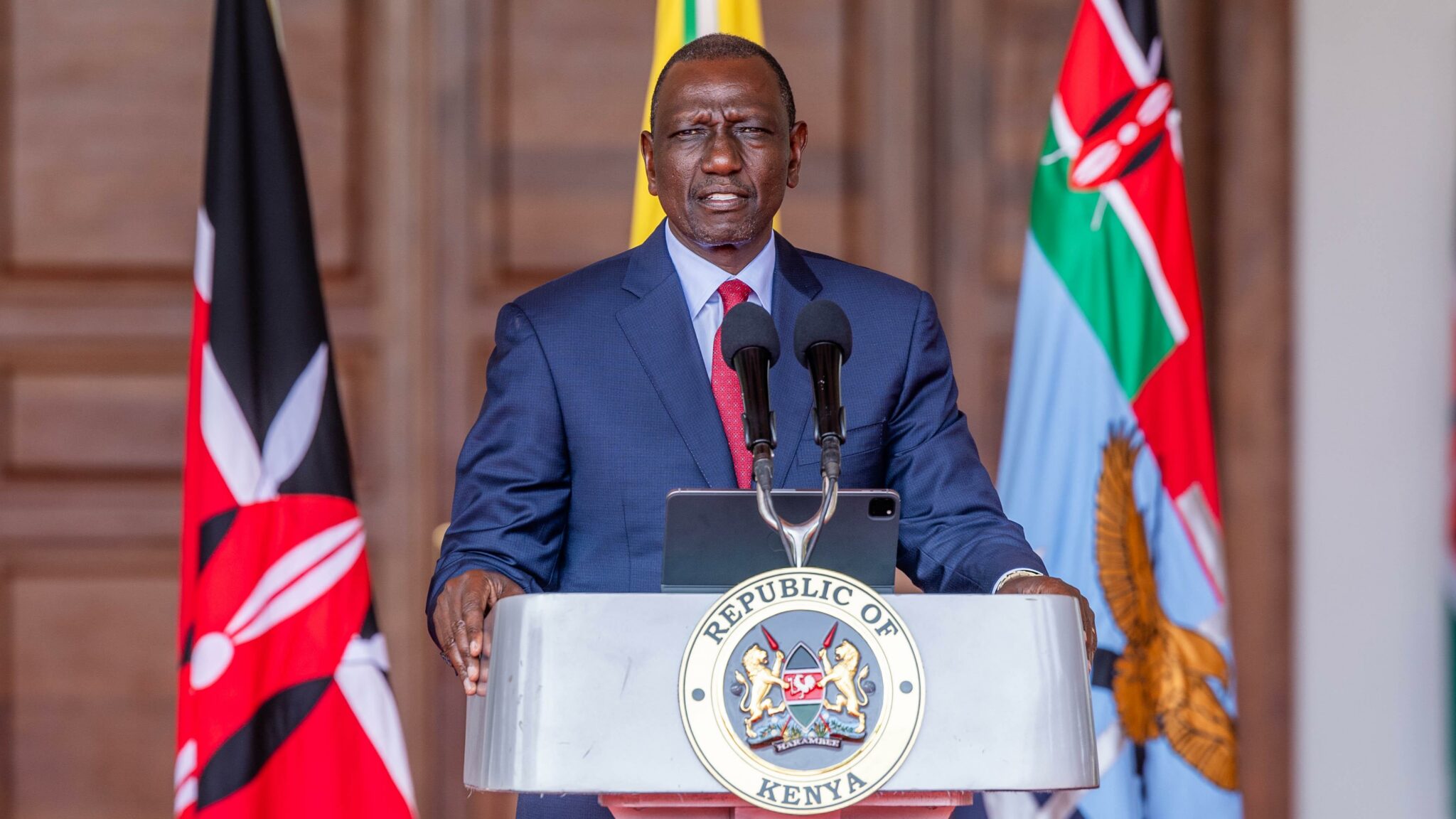Kenya Biovax Institute Limited was established as part of the country’s strategy to enhance self-sufficiency in vaccine production and reduce reliance on imports, especially following lessons learned during the COVID-19 pandemic.
 President William Ruto/FILE
President William Ruto/FILEPresident William Ruto has made a fresh wave of appointments across key state agencies, signalling a continued focus on revitalising leadership in institutions central to healthcare, procurement, trade, and governance.
In a Kenya Gazette notice dated July 4, 2025, Ruto appointed John Munyu as the Non-Executive Chairperson of the Pharmacy and Poisons Board.
“In exercise of the powers conferred by section 3 (1) (a) of the Pharmacy and Poisons Act, as read together with section 51 (1) of the Interpretation and General Provisions Act, I, William Samoei Ruto, President of the Republic of Kenya and Commander-in-Chief of the Defence Forces appoint John Munyu to be the Non-Executive Chairperson of the Pharmacy and Poisons Board, for a period of three (3) years, with effect from 4th July, 2025,” the notice reads.
He previously served as CEO of KEMSA, the state agency responsible for procuring and distributing medical commodities in Kenya, playing a crucial role in ensuring a steady drug supply to public healthcare facilities.
The appointment revokes that of Charles Githinji, who was promptly reassigned to head Kenya Biovax Institute Limited as its Non-Executive Chairperson for a three-year term under the State Corporations Act.
Ruto also appointed Dr. Charles Githinji as the new Non-Executive Chairperson of the Board of Directors at Kenya Biovax Institute Limited.
The appointment, which took effect on July 4, 2025, was made under the authority granted by the Interpretation and General Provisions Act.
Dr. Githinji will serve for a term of three years. His appointment comes alongside the revocation of the earlier appointment of Dr. Swarup Ranjan Mishra, who previously held the position.
President Ruto confirmed the leadership change at the state-owned institution, which plays a key role in local vaccine development and biotechnology research.
In the area of public finance oversight, Susan Mambo’s appointment to the Public Procurement Administrative Review Board was revoked by Treasury Cabinet Secretary John Mbadi Ng’ongo, marking a change in the regulatory board that oversees appeals and disputes in public procurement.
Further consolidating leadership in pensions management, Hussein Dado was appointed Chairperson of the Public Service Superannuation Fund Board of Trustees for three years, effective the same date.
In the education sector, Henry Anyona was appointed to the board of the Jomo Kenyatta Foundation, replacing Consolata Rop, whose appointment was revoked.
Meanwhile, in trade and industry, Consolata Rop was re-appointed by CS Lee Kinyanjui to the National Standards Council tasked with overseeing national standards and quality assurance frameworks.
On a broader scale, the same ministry established a new National Technical Barriers to Trade Committee, comprising over 50 institutions ranging from the Kenya Bureau of Standards (KEBS) to universities, ministries, and sector regulators.
The committee is chaired by the Principal Secretary for
Trade and aims to harmonise Kenya’s regulatory framework in line with the World
Trade Organization’s Technical Barriers to Trade Agreement.










